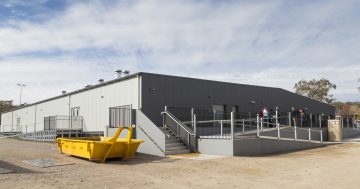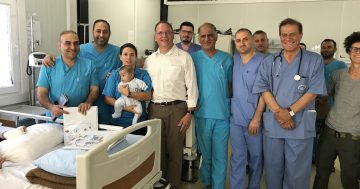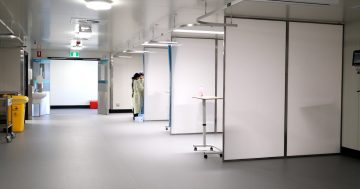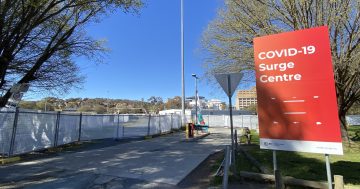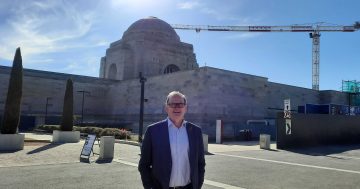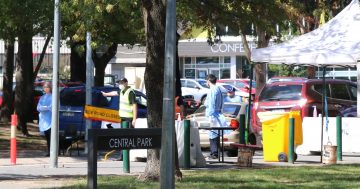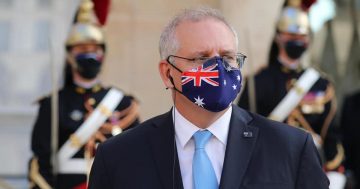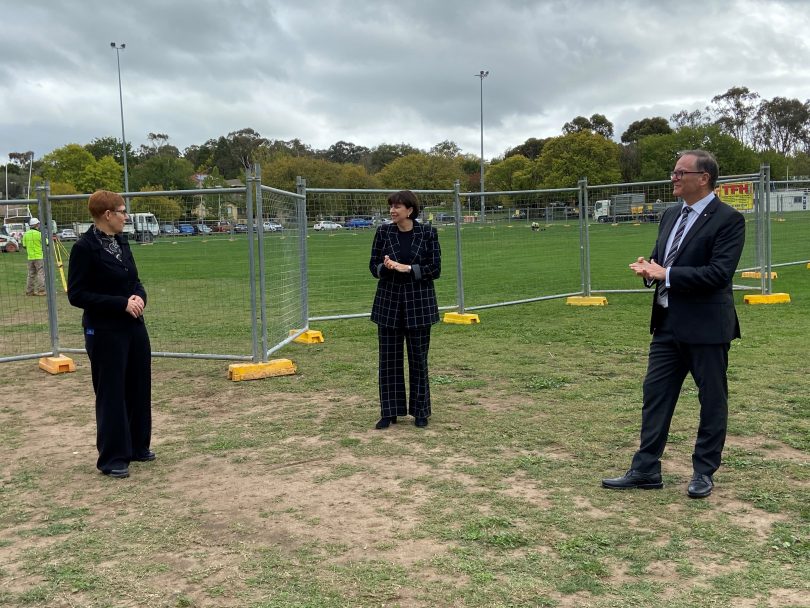
Health Minister Rachel Stephen-Smith, Canberra Health Services CEO Bernadette McDonald and Aspen Medical chair Glenn Keys on the Garran Oval before the temporary ED was built. Photos: File.
It’s far too early to consider demobilising the unused COVID-19 emergency department on Garran Oval, according to the head of the company which built the facility.
While the temporary ED is currently being used as a COVID-19 testing site, the facility has not had to be used as a surge centre due to containment measures in the ACT working to limit the number of cases needing medical treatment.
Chair of Aspen Medical Glenn Keys appeared at a Legislative Assembly committee hearing today (16 July) and told it that he did not believe any decision had been made on the facility’s future, and nor should one be made yet.
”I don’t think a decision has been made and I actually don’t think we need to make one now either because what we’ve seen in Victoria and some of the suburbs in Sydney suggest that this has a little while to run yet, and I think being flexible and adaptable is going to be critical to getting out of this as fast as possible,” Mr Keys said.
He told the committee that the COVID-19 threat was far from over.
But when the government did decide the facility was no longer needed there were many options for it to be relocated and used elsewhere for any number of different eventualities.
Mr Keys said its innovative design and built-in flexibility meant the facility could be packed up within a matter of weeks and could be either stored in shipping containers until needed or moved to another site.
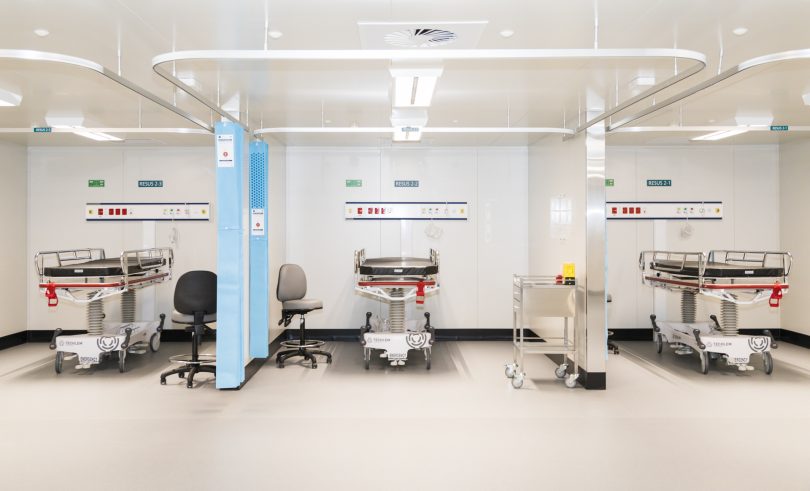
Inside the COVID-19 ED at Garran Oval.
A range of other uses had been canvassed including sale to another jurisdiction, as a training centre or deployed in the Pacific as part of the regional health security initiative.
”What that shows is we’ve actually created an asset that is incredibly flexible and incredibly capable to be used elsewhere,” Mr Keys said.
He told the committee that if COVID-19 took off in the ACT it would take three weeks for Aspen Medical to source from its core workforce across Australia the staff needed to run the ED.
But he said no staff would be poached from existing the ACT health system, say that would be like ”moving the deckchairs”.
He said Aspen Medical was ready to respond no matter what level was required or if a phased approach was taken.
”We are ready for models where not all the beds are [occupied],” Mr Key said.
Mr Keys said that it was the government that initiated talks with the company about setting up the COVID-19 ED, but that the process had been a very collaborative one.
He said there wasn’t the time to proceed as usual during contract negotiations and that involved the company accepting an amount of risk to take on the project.
”To met those timelines we realised the government was operating in extraordinary circumstances and we did take on that risk but in a way that we thought was justified and appropriate.”
Mr Keys said the government did all it could to smooth the way for the project; for example, by expediting the development application.
”We would raise things about what needed to get done. Literally we would work out who was best placed to do it or who could assist us getting it done,” he told the committee.
Mr Keys paid tribute to the public servants, the contractors and the community for supporting the project.
The ACT Government set aside $23 million to build and operate the temporary ED.












